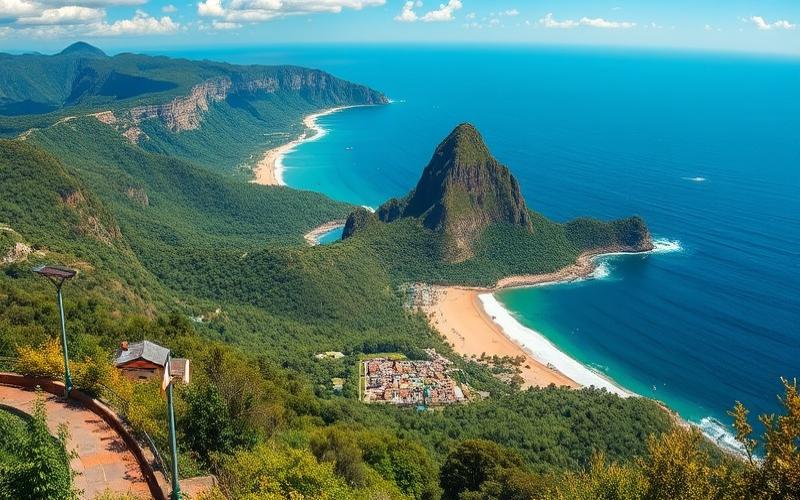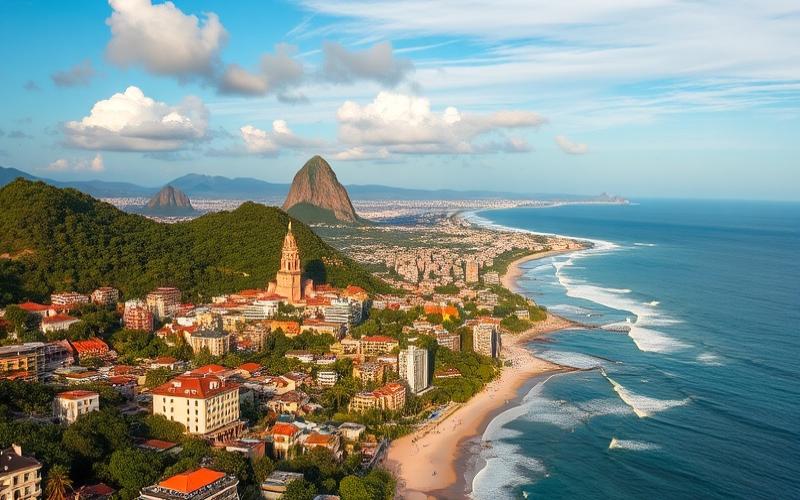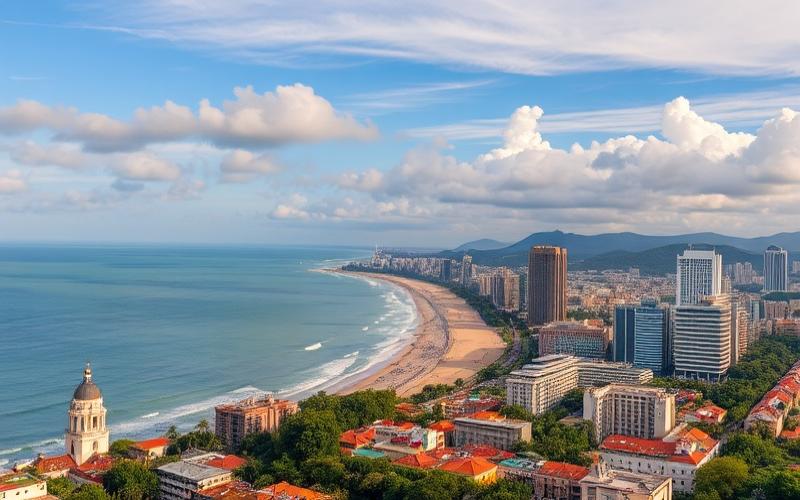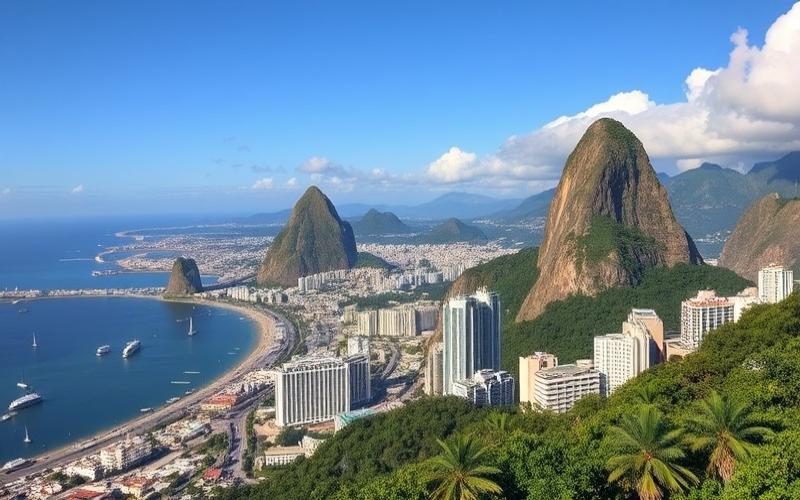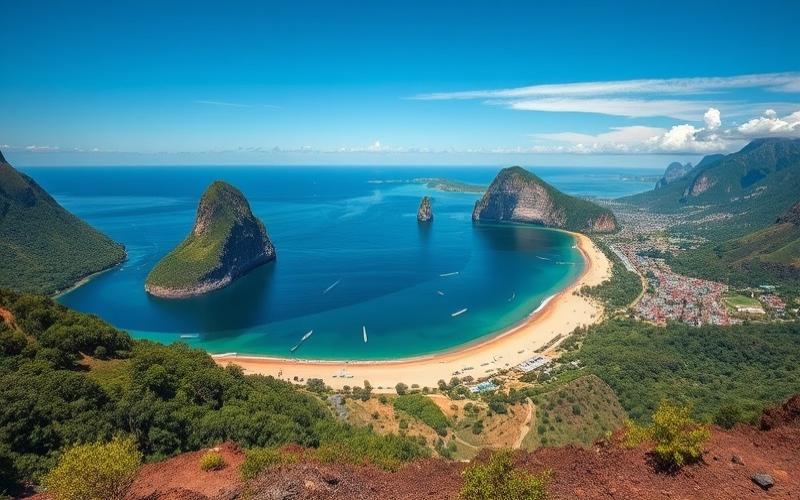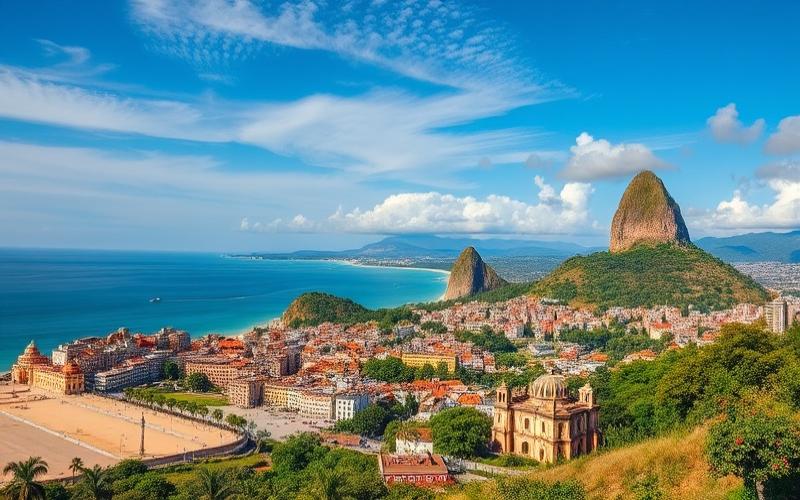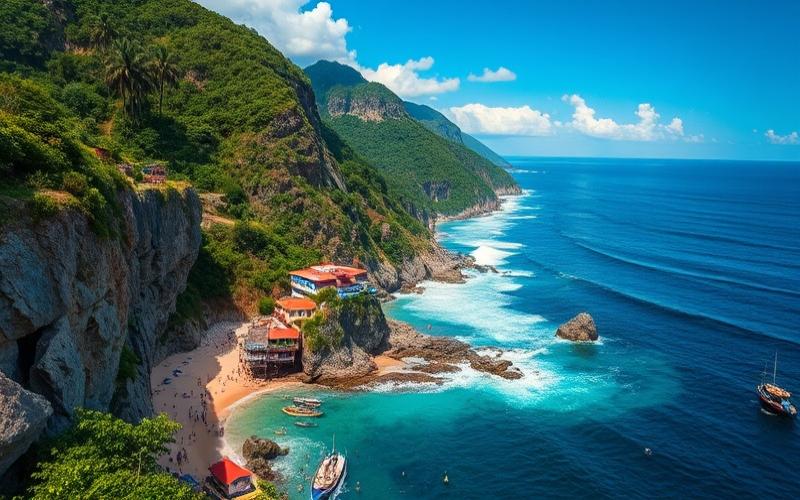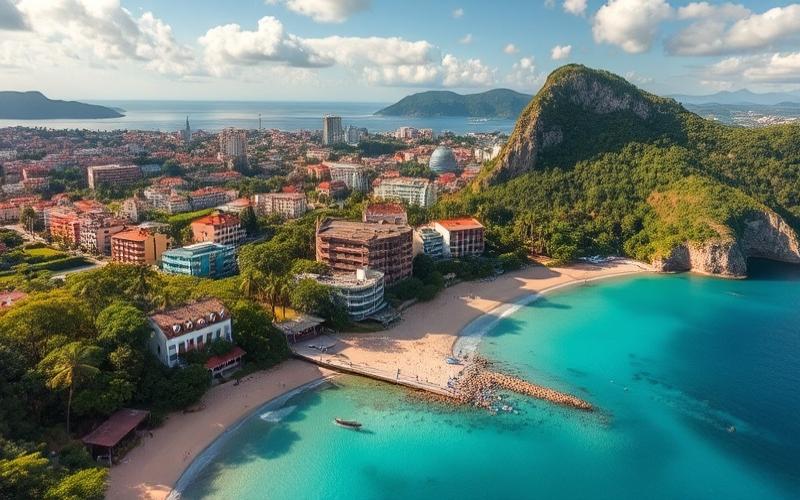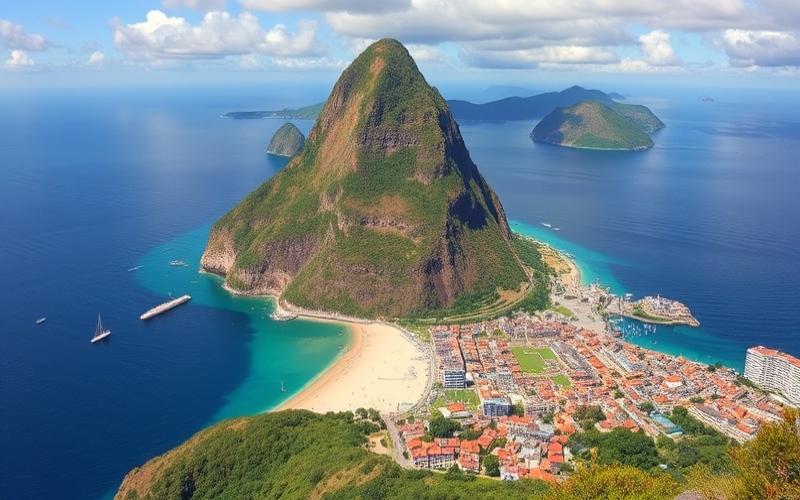
 Published on and written by Cyril Jarnias
Published on and written by Cyril Jarnias
In 2025, Brazil’s legislative framework regarding foreign nationals’ rights is undergoing significant changes, reflecting the country’s major socioeconomic shifts. As Brazil strives to balance migrant reception with its development policies, these recent reforms emphasize new protective measures while seeking to facilitate foreigners’ integration into Brazilian society.
By focusing on crucial aspects such as the right to work, access to social services, and simplified naturalization pathways, these legislative updates are sparking intense debate among legal experts, human rights activists, and policymakers.
Recent Immigration Reforms in Brazil
Recent Immigration Reforms in Brazil in 2025
Since April 2025, Brazil has implemented several major changes to its migration policy, with direct impacts on visa procedures and migrant integration.
| Change | Main Description | Intended Objective |
|---|---|---|
| Elimination of permanent visa | The “permanent visa” category no longer exists; only temporary visas or residence permits are now available. | Reduce irregular stays, simplify regularization |
| Temporary extension of tourist visa waiver (Canada, USA, Australia) | The waiver has been extended until April 2025 to boost tourism. Starting April 10, 2025, e-visa requirement for these nationals. | Support tourism sector then harmonize entry requirements |
| Introduction of visitor visa | Allows foreign citizens short stays (less than 90 days) for tourism or business. | Facilitate short trips while better controlling immigration |
| Focus on South-South migration | Policies refocus on welcoming and regulating flows from the Global South (Haitians, Venezuelans…). | Promote inclusive approach adapted to current migration diversity |
Main Legislative Objectives
- Improved visa procedures: administrative simplification through e-visa and clarification of available categories.
- Enhanced refugee integration: orientation toward better social and legal support particularly for South-South flows.
- Reduction of irregular immigrants: opportunity for individuals already in Brazil with job offers or legal contracts to obtain temporary permits or official authorization.
Illustrative Quotes
“The main objective is to reduce the number of irregular stays in the country” – official excerpt from the new Migration Law.
According to Leonardo Cavalcanti (University of Brasília), during the international symposium held in early March:
“The migration scenario in Brazil is more complex today than it was before… The country is both a destination and transit space…”
A representative from the Brazilian Ministry of Foreign Affairs justified the return to a general e-visa requirement as follows:
“This measure aims not only to strengthen our border control but also to ensure every visitor is properly registered upon arrival.”
Potential Repercussions
- For the current immigrant population
- Easier access to administrative procedures via e-visas
- Increased possibility for workers present without regular status to obtain legal status
- Uncertainty for those hoping to obtain permanent status now eliminated
- On the Brazilian economy
- Temporary boost expected in tourism sector until April then possible decline due to mandatory e-visa reinstatement
- Better integrated foreign workforce through contractual channels benefiting certain professional sectors
- Necessary adaptation to new migration profiles mainly from Latin America and Africa
The reform therefore marks a turning point toward greater administrative control while seeking to adapt to contemporary demographic realities characterized by strong regional mobility.
Good to know:
In 2025, Brazil has adopted new laws aimed at facilitating visa procedures and improving refugee integration, strengthening asylum policies according to experts, while projecting a positive impact on the national economy. According to the Minister of Justice, these reforms should simplify procedures for applicants and encourage significant economic contribution from the immigrant population.
New Legislative Provisions for Expatriates
New Legislative Provisions for Expatriates in Brazil in 2025
Main Legislative Changes
- The Brazilian tax reform, adopted through complementary law no. 214/2025, unifies five taxes (ICMS, ISS, IPI, PIS, Cofins) into two main ones: CBS (Contribution on Goods and Services) at the federal level and IBS (Tax on Goods and Services) for states and municipalities.
- Gradual implementation of a dual VAT model with a seven-year transition period (2026-2033).
- Strengthening of tax identification procedures with the new alphanumeric CNPJ for legal entities starting July 2026 (applicable only to new registrations).
- Modernization of electronic invoicing procedures and adaptation of administrative systems to integrate new tax rules.
- Visa, work permit, and residence procedures remain structured around the need to obtain specific visas according to stay purpose, followed by mandatory registration with the Federal Police for issuance of the National Migration Registration Card (CRNM). Requirements for supporting documents (passport, employment contract, lease, etc.) and compliance with registration deadlines (30 to 90 days) are maintained.
Summary Table of Main Procedures for Expatriates
| Procedure | Required Documents | Deadline | 2025 Specificity |
|---|---|---|---|
| Visa (before departure) | Passport, purpose justification | Before departure | Unchanged procedure |
| Federal Police Registration (CRNM) | Passport, form, lease | 30 to 90 days | Variable federal fee |
| CPF obtaining | Passport, form | After arrival | Simplified procedure |
| Non-resident tax declaration | Final departure declaration | Before May 30 | Tax unification |
Impact on Expatriates
Tax resident expatriates are now subject to the new unified tax structure, which could modify the distribution of tax burden according to their income nature.
Non-resident expatriates remain taxed only on Brazilian-source income but benefit from simplified declaration procedures and fixed rates (25% on salaries, 15% on investments).
Administrative procedures for obtaining CPF and CRNM remain essential, but the reform implies adaptation of invoicing and tax identification systems that may cause delays or temporary adjustments for new arrivals.
Expatriate Community and Advocacy Group Reactions
Several expatriate groups welcome the simplified tax system, perceived as a modernization and transparency measure.
Concerns persist regarding adaptation to new digital systems, particularly for foreign entrepreneurs and SMEs, due to transition complexity and the need to update management tools.
According to tax expert Andréa Soares:
“The reform moves toward greater clarity but requires training and support efforts for new arrivals and foreign companies.”
Government Motivations
The government justifies these changes by the desire to simplify the tax system, stimulate foreign investment, and reduce administrative burden for both individuals and businesses.
The stated objective is to increase Brazil’s competitiveness internationally while combating tax evasion and fraud.
Support and Adaptation Measures
Implementation of a seven-year transition period to allow residents, businesses, and administrations to gradually adapt to new tax rules.
Deployment of testing environments for new electronic invoicing formats starting July 2025, and technical support for businesses.
Regular publication of practical guides and technical notes by the Receita Federal and consulates to inform expatriates and facilitate procedure completion.
Concrete Example
A French expatriate arriving in 2025 must still apply for an appropriate visa before departure, then register with the Federal Police to obtain their CRNM and CPF. However, if creating a company or practicing independent activity, they must inform themselves about the new dual VAT structure (CBS/IBS) and ensure their electronic invoices comply with new standards, under penalty of administrative sanctions.
“The adaptation process will require increased vigilance, but the reform constitutes an expected advancement by the international community.” (Statement from a representative of the European Expatriates Association in Brazil)
Good to know:
Brazil’s new 2025 laws simplify visa renewals and introduce a unified work permit, sparking debate among expatriates who express concerns about obtaining permanent resident status; according to the Ministry of Justice, these changes aim to stimulate the economy and attract foreign talent, with a support plan for those already established.
Impact of Changes on Foreign Nationals’ Rights
Main Legislative Modifications on Foreign Nationals’ Rights in Brazil in 2025
- Elimination of permanent visa: Foreigners can no longer obtain permanent visas; only temporary visa options or residence permits are now available.
- Introduction of mandatory eVisa for US, Canadian, and Australian nationals starting April 10, 2025, ending years of visa exemption.
- Strengthened regularization requirements for all foreigners wishing to work or stay in Brazil, with stricter document legalization and translation procedures.
Direct and Indirect Impacts on Foreigners Living in Brazil
| Aspect | Direct Impact | Indirect Impact |
|---|---|---|
| Economic | Restricted access to job market for certain profiles | Potential decline in Brazil’s attractiveness for foreign investors |
| Social | Complicated regularization procedures | Increased feelings of uncertainty and precariousness among foreigners |
| Legal | Increased controls and administrative sanctions | Higher risk of irregular situations and deportations |
Recent Statistical Data (2024-2025)
- Number of foreigners legally living in Brazil: approximately 1.3 million in 2024, up 8% from 2023.
- 15% increase in temporary stay permit applications in first half 2025, mainly for professional and family reasons.
- 12% decrease in new settlements of American, Canadian, and Australian nationals in second quarter 2025, direct consequence of eVisa introduction.
Testimonials
“The elimination of permanent visa disrupted my life plans in Brazil. I have to renew my residence authorization every two years, which adds much uncertainty.”
— Maria, Spanish engineer settled in São Paulo since 2018
“The eVisa introduction forced me to reconsider my business trips. The procedure is simple but waiting times remain unpredictable.”
— John, American entrepreneur on assignment in Rio de Janeiro
Implications for International Relations and Future Migration Policies
- New visa requirements for American, Canadian, and Australian citizens reflect diplomatic rebalancing, with Brazil responding to reciprocity imposed by these countries.
- These measures could slow tourist and business flows from these regions, while strengthening migration cooperation with Mercosur countries where mobility remains facilitated.
- Medium-term, Brazilian migration policy is moving toward more selective and controlled flow management, while continuing to attract qualified profiles (investors, digital nomads, etc.), but with stricter criteria and increased monitoring of temporary stays.
Reference Legal Texts and Parliamentary Debates
- Decree no. 9,199 of November 20, 2017 (Migration Law), amended by 2024 and 2025 decrees regarding permanent visa elimination and eVisa introduction.
- Parliamentary debates of January 15, 2025 concerning visa policy reciprocity with United States and Canada.
- Federal Police instructions on foreigner registration and regularization (2025).
Good to know:
In 2025, Brazil modified its foreign nationals’ rights, facilitating job market access for qualified migrants but restricting family reunification, which could affect family and economic dynamics. According to a parliamentary report, these changes could influence trade relations with Latin American neighbors.
Future Perspectives for Immigration in Brazil
Migration flows to Brazil are evolving with diversified migrant profiles and the impact of recent legislative reforms. Despite negative net migration in 2024, the country attracts growing numbers of asylum seekers, qualified professionals, students, and digital nomads.
Migration Trends and Forecasts
- Net migration remains negative: -225,510 in 2024, marking a 6.06% decrease from 2023.
- Asylum applications increasing: 68,159 in 2024 (+16.3%), mainly from Venezuela, Cuba, and Angola.
- Brazil becoming attractive for diverse profiles: refugees, qualified workers, students, retirees, digital nomads.
| Year | Net Migration | Annual Variation |
|---|---|---|
| 2021 | -208,581 | +165.9% |
| 2022 | -253,639 | +21.6% |
| 2023 | -240,059 | -5.35% |
| 2024 | -225,510 | -6.06% |
| Asylum Seeker Countries of Origin (2024) | Number of Applications |
|---|---|
| Venezuela | 27,150 |
| Cuba | 22,288 |
| Angola | 3,421 |
| India | 2,144 |
| Vietnam | 1,914 |
| … | … |
Recent Reforms and Legislative Projects
- The 2017 Migration Law replaced the 1980 Foreign Nationals’ Statute, adopting a more humanitarian approach and guaranteeing fundamental rights to migrants.
- Recent legislative projects aim to:
- Simplify visa obtaining for qualified workers and investors.
- Strengthen border controls to combat irregular immigration.
- Facilitate refugee and asylum seeker integration.
Potential Economic, Social, and Cultural Impacts
Economic:
- Qualified migrants help fill shortages in certain sectors (healthcare, technology, agriculture).
- Foreign investments may be stimulated by arrival of entrepreneurs and retirees with capital.
- Irregular migration flows may generate tensions on public services.
Social:
- Growing diversity enriches social fabric but poses integration challenges, particularly in job and housing access.
- Major cities like São Paulo and Rio de Janeiro are main reception hubs, increasing urban pressure.
Cultural:
- Contributions from Asian, African, and Latin American communities energize cultural life (cuisine, festivals, arts).
- Multiculturalism is valued in official discourse, but xenophobic tensions persist locally.
Government Policies and International Initiatives
- Development of specific visa policies (humanitarian visa, digital nomad visa, facilitation for students and researchers).
- Enhanced collaboration with UN and neighboring countries for refugee management, particularly from Venezuela.
- Language and professional integration programs, with participation from NGOs and international organizations.
Public Opinions and Political Positions
- Public opinion is divided: part of population supports refugee reception for humanitarian reasons, while others express concerns about employment and security.
- Left-wing parties defend welcoming and integration policies, emphasizing human rights.
- Conservative parties advocate stricter controls and condition reception on economic integration.
- Businesses and universities generally favor qualified immigration, considered an asset for innovation and growth.
Key Takeaways:
Brazil, despite negative net migration, is establishing itself as a strategic destination for increasingly diversified migrants. Public policies oscillate between facilitating reception and increased regulation, within a context of intense political and social debates about immigration’s future.
Good to know:
Recent reforms aim to stimulate the Brazilian economy by increasing qualified immigration, while planning international agreements to manage refugee flows. Future policies might also intensify collaborations with other South American nations to encourage regional integration.
Disclaimer: The information provided on this website is for informational purposes only and does not constitute financial, legal, or professional advice. We encourage you to consult qualified experts before making any investment, real estate, or expatriation decisions. Although we strive to maintain up-to-date and accurate information, we do not guarantee the completeness, accuracy, or timeliness of the proposed content. As investment and expatriation involve risks, we disclaim any liability for potential losses or damages arising from the use of this site. Your use of this site confirms your acceptance of these terms and your understanding of the associated risks.

